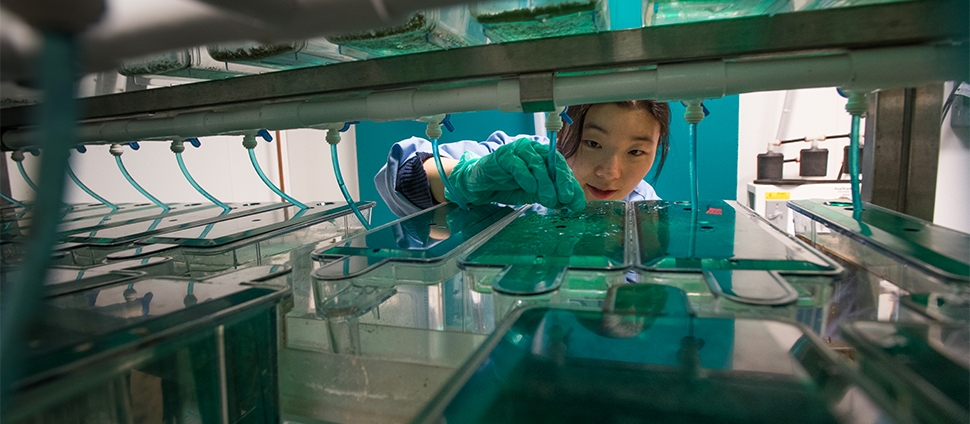Document Type
Article
Publication Date
11-1-2021
Publication Title
Journal of Bacteriology
Abstract
One of the first environmental cues sensed by a microbe as it enters a human host is an upshift in temperature to 37°C. In this dynamic time point analysis, we demonstrate that this environmental transition rapidly signals a multitude of gene expression changes in Escherichia coli. Bacteria grown at 23°C under aerobic conditions were shifted to 37°C, and mRNA expression was measured at time points after the shift to 37°C (t = 0.5, 1, and 4 h). The first hour is characterized by a transient shift to anaerobic respiration strategies and stress responses, particularly acid resistance, indicating that temperature serves as a sentinel cue to predict and prepare for various niches within the host. The temperature effects on a subset of stress response genes were shown to be mediated by RpoS and directly correlated with RpoS, DsrA, and RprA levels, and increased acid resistance was observed that was dependent on 23°C growth and RpoS. By 4 h, gene expression shifted to aerobic respiration pathways and decreased stress responses, coupled with increases in genes associated with biosynthesis (amino acid and nucleotides), iron uptake, and host defense. ompT, a gene that confers resistance to antimicrobial peptides, was highly thermoregulated, with a pattern conserved in enteropathogenic and uropathogenic E. coli strains. An immediate decrease in curli gene expression concomitant with an increase in flagellar gene expression implicates temperature in this developmental decision. Together, our studies demonstrate that temperature signals a reprogramming of gene expression immediately upon an upshift that may predict, prepare, and benefit the survival of the bacterium within the host.
Keywords
Anaerobic respiration, Biofilm, Biofilms, RpoS, Stress response, Temperature, Transcriptional regulation, Transcriptome, Virulence
Volume
203
Issue
22
DOI
10.1128/JB.00363-21
ISSN
00219193
Creative Commons License

This work is licensed under a Creative Commons Attribution 4.0 International License.
Rights
© 2021 Gant Kanegusuku et al.
Version
Version of Record
Recommended Citation
Kanegusuku, Anastasia Gant; Stankovic, Isidora N.; Cote-Hammarlof, Pamela A.; Yong, Priscilla H.; and White-Ziegler, Christine A., "A Shift to Human Body Temperature (37°C) Rapidly Reprograms Multiple Adaptive Responses in Escherichia coli That Would Facilitate Niche Survival and Colonization" (2021). Biological Sciences: Faculty Publications, Smith College, Northampton, MA.
https://scholarworks.smith.edu/bio_facpubs/239


